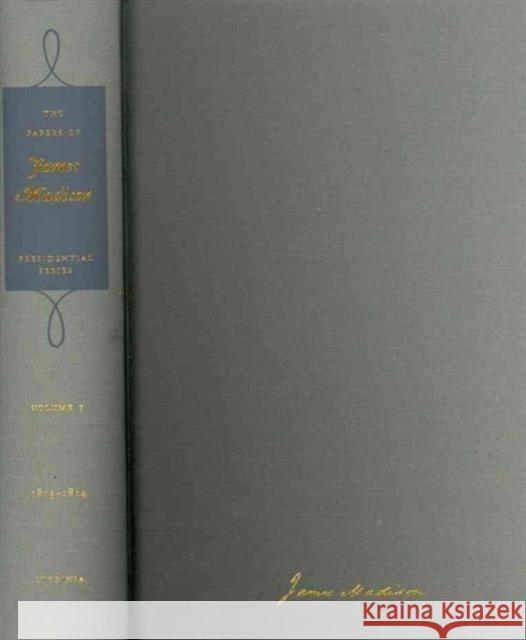The Papers of James Madison: 25 October 1813-30 June 1814 Volume 7 » książka
The Papers of James Madison: 25 October 1813-30 June 1814 Volume 7
ISBN-13: 9780813932569 / Angielski / Twarda / 2012 / 696 str.
The Papers of James Madison project, housed at the University of Virginia, was established in 1956 to publish annotated volumes of the correspondence and writings of James Madison, the Virginia statesman most often remembered for his public service as -Father of the Constitution- and as fourth president of the United States.The published volumes provide accurate texts of Madison's incoming and outgoing correspondence, informative notes on textual and subject matters, and comprehensive indexes. They are incomparably rich sources for students of Madison's life and valuable research tools for those interested in the general history of the period in which Madison lived (1751-1836). The project has collected more than 27,000 copies of documents related to Madison's life, including letters, essays, notes, diaries, account books, ledgers, wills, legal papers, and inventories. The project serves the public by translating into print these decaying and often nearly illegible manuscripts, thereby preserving them for future generations and making them easier to use. The published volumes also make the contents of Madison-related documents--the originals of which are housed in some 250 archives worldwide--easily accessible to libraries and interested individuals anywhere books travel.The Presidential Series, covering the years 1809 to early 1817, centers largely on Madison's record as commander-in-chief during the War of 1812, the first full-scale conflict to be waged under the U.S. Constitution of 1787. Madison's correspondence as president deals with a particularly wide range of concerns--national politics, international diplomacy and war, Indian affairs, the construction of the nation's capital, even petitions from ordinary citizens for charity and mercy--to which Madison responded.Volume 7 of the Presidential Series, covering the period between late October 1813 and June 1814, documents Madison's response to diplomatic developments and European military events affecting the war between the United States and Great Britain. Early in 1814 the president accepted an offer of direct peace negotiations, although his country's military situation did not augur well for the outcome. He sought to improve U.S. diplomatic prospects by strengthening commercial ties with Europe in the wake of Napoleon's defeat, but also supervised planning and financing for continuing U.S. military campaigns if necessary. Some of Madison's private affairs are documented through family correspondence and a vituperative letter from a disgruntled former White House steward. In addition, there is the Edinburgh Review editor Francis Jeffrey's revealing account of conversations with Madison in November 1813. Access to people, places, and events of the period is facilitated by detailed annotation and a comprehensive index.











